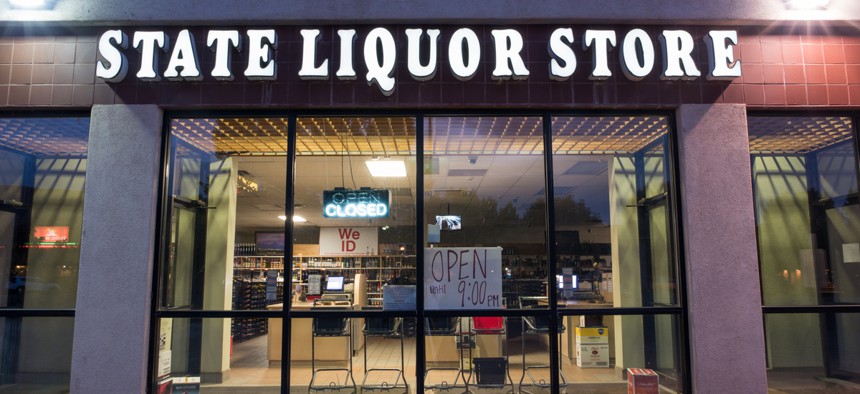A Plan To Prevent Drunk Drivers From Buying Alcohol

A liquor store in Moab, Utah. Shutterstock
Proposed legislation in Utah would create an "Alcohol-Restricted Individual Program," with both voluntary and court-ordered participation.
State-run liquor stores in Utah would be prohibited from selling to certain people who either put themselves on a list of banned customers or are placed there by a judge under a proposal introduced this month in the state legislature.
As written, the legislation would create an “Alcohol-Restricted Individual Program,” essentially a list of names maintained by the state’s Department of Alcoholic Beverage Control. State-run liquor stores would scan a person’s driver’s license to confirm participation in the program and approve or deny their sale accordingly.
Utah is a liquor control state, where liquor sales are directly controlled at the wholesale level by a state agency. Seventeen states, and jurisdictions in four others, have various forms of the "control" model, according to the National Alcoholic Beverage Control Association. Utah "believes that moderation can best be achieved by neither promoting nor encouraging the consumption of alcohol, but rather by controlling it," according to the Department of Alcoholic Beverage Control's website.
The legislation is designed to address what Rep. Steve Eliason, a Republican from Sandy, views as a loophole in how the state deals with drunk drivers.
“The state releases them from custody and they can walk to a state liquor store and purchase products,” he told the St. Lake Tribune. “On one hand, the state is telling them not to do something and on the other hand, the state is facilitating it.”
The bill would give judges the authority to mandate enrollment in the program for drunk drivers, even first-time offenders. But people could also enroll voluntarily. Eliason told the Tribune he was hopeful that substance abuse counselors would encourage their patients to sign up as an extra safeguard against relapse.
Under the terms of the legislation, the Department of Alcoholic Beverage Control would be prohibited from sharing any information about current or former program participants. People who enroll voluntarily could remove themselves at any time, though the state would allow three days for that process to be completed. The state would also be prohibited from retaining information about past participants.
The legislation would apply only to state-run liquor stores, meaning program participants could still buy beer at grocery and convenience stores.
The bill is currently awaiting a hearing before the House Business and Labor Committee.
Kate Elizabeth Queram is a Staff Correspondent for Route Fifty and is based in Washington, D.C.
NEXT STORY: Local and State Governments Object to Hosting Coronavirus Patients in Quarantine





